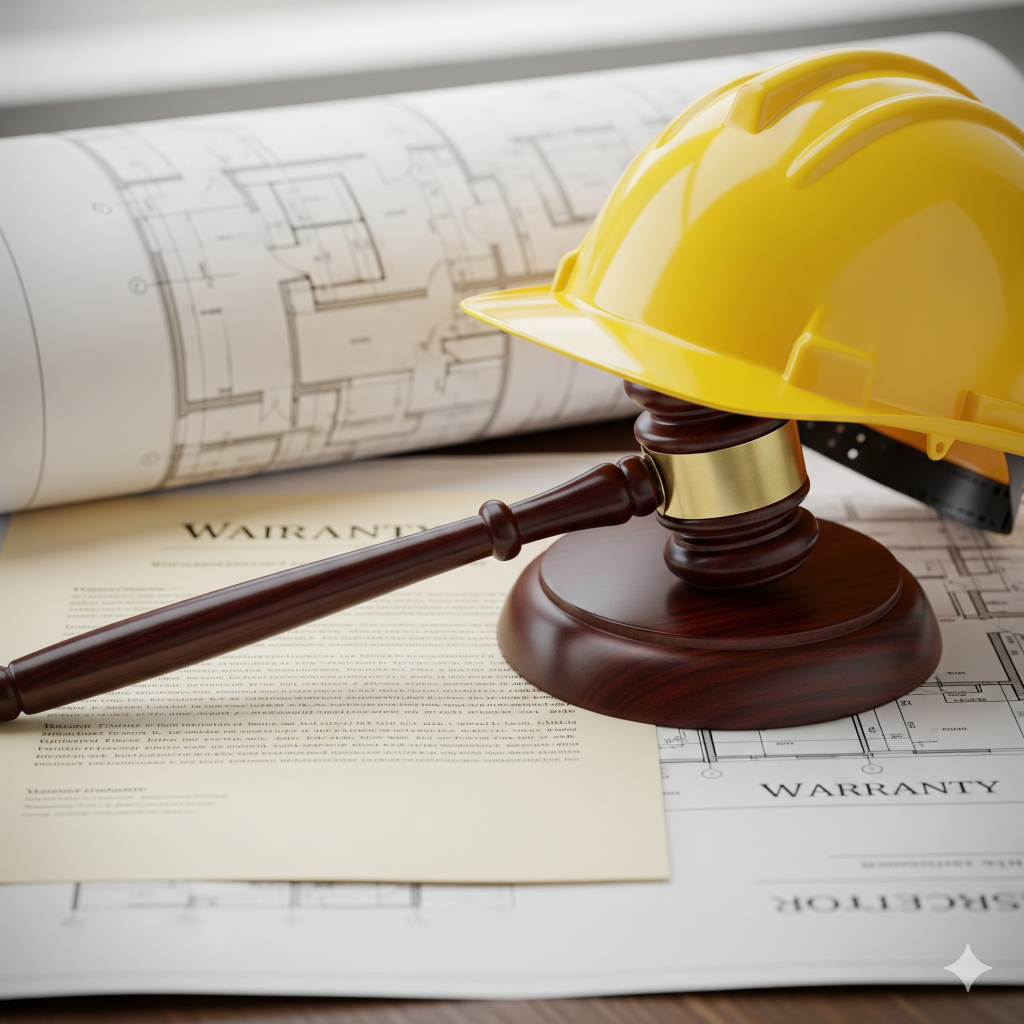
In the realm of construction contracts, the warranty clause serves as a pivotal element that delineates the obligations and rights of the parties involved. This clause not only provides assurances regarding the quality and durability of the work performed but also establishes a legal framework for addressing potential disputes. A warranty clause can encompass various aspects, including the duration of the warranty, the materials used, and the standards of workmanship expected. Understanding the legal considerations surrounding construction warranty clauses is essential for both contractors and clients. These clauses can vary significantly across jurisdictions, influenced by local laws, industry practices, and the specific terms negotiated within each contract. This paper explores the intricacies of warranty clauses, examining their implications, enforcement mechanisms, and the varying legal standards that govern them. By shedding light on these factors, we aim to equip stakeholders with the knowledge necessary to navigate the complexities of construction warranties effectively.
- On the construction warranty period
The construction warranty clause shall be subject to the agreement between the employer and the contractor. Within the same contract, the parties may agree on different warranty terms applicable to each construction item, facility, or technological equipment supplied by the contractor.
It should be noted that the agreed warranty term must comply with the statutory minimum period corresponding to the type and grade of the construction work (if applicable).
Pursuant to Decree No. 06/2021/ND-CP, the warranty term for construction works or work items funded by public investment or state capital other than public investment shall not be less than 12 months. For works financed by other sources, the parties may refer to and adopt the same minimum period. However, certain specific works are subject to mandatory longer warranty terms, such as 60 months for apartment buildings and 24 months for detached houses.
The commencement and expiration of the construction warranty term should also be clearly negotiated and recorded in the contract, commonly by reference to specific dates aligned with the overall project schedule. By law, the warranty term shall commence upon completion of the construction phase or the delivery, transportation, or operation of equipment, as recorded in the acceptance certificate.
A transparent and detailed timeframe constitutes one of the most decisive legal grounds for assessing whether the Contractor has duly fulfilled its obligation to remedy defects, as well as for determining the point at which the Employer is required to complete the final payment.
- On the mechanism for securing construction warranty obligations
To ensure that the contractor duly performs its construction warranty obligations and to provide a contingency plan in the event of a breach, the parties may agree on a mechanism to secure compliance throughout the construction warranty term. Two common methods in construction contracts include a “retention sum” or a “warranty bond” issued by a bank, with a validity period no shorter than the construction warranty term.
The minimum warranty value (or warranty amount) is prescribed by law at between 3% and 5% of the contract value, depending on the grade of the construction work, and is applicable to works funded by public investment capital or state capital other than public investment. For works financed by other sources, the parties may refer to and adopt the above statutory benchmark.
In addition, the contract should also expressly provide for circumstances constituting a breach, the conditions for recourse to the warranty amount, and the point at which the contractor is entitled to the release of the retention sum or the discharge of the warranty bond, as the case may be.
- On methods of enforcing construction warranty obligations
An equally important yet sometimes “overlooked” aspect concerns the methods by which the employer may require the contractor to perform its construction warranty obligations, in other words, the communication channels that ensure such requests are formally valid.
In addition to the conventional and most common form, written requests bearing the signature of an authorized representative and the corporate seal, the parties may consider expanding acceptance to other forms, such as fax, email, or their equivalents, in urgent cases where timeliness and convenience are necessary to meet practical needs.
Regardless of the form of request, the parties should ensure: (i) the authority of the employer’s representative making the request; (ii) the contractor’s ability to receive and access such information; and (iii) the evidentiary certainty of the request, in order to prevent potential disputes between the parties in the future.
Furthermore, the contract should provide for a reasonable timeframe for the Contractor’s response, the Employer’s follow-up actions, and a coordination mechanism between the parties in addressing defects.
In conclusion, the legal considerations regarding construction warranty clauses are multifaceted and critical for ensuring the integrity of construction projects. A well-defined warranty clause not only protects the interests of both parties but also enhances the overall quality of the construction process. By comprehensively understanding the obligations imposed by these clauses, parties can better navigate potential disputes and safeguard their rights. Furthermore, awareness of the legal standards governing warranty clauses can help mitigate risks associated with non-compliance and ensure adherence to industry norms. As the construction industry continues to evolve, maintaining an updated understanding of legal frameworks and best practices in warranty clauses will be essential for fostering trust, accountability, and collaboration among stakeholders. Ultimately, a robust warranty clause serves as a foundation for successful construction ventures, contributing to more resilient and sustainable outcomes in the built environment.
📞 CONTACT LEGAL CONSULTANT:
TLA Law is a leading law firm with a team of highly experienced lawyers specializing in criminal, civil, corporate, marriage and family law, and more. We are committed to providing comprehensive legal support and answering all your legal questions. If you have any further questions, please do not hesitate to contact us.
1. Lawyer Vu Thi Phuong Thanh, Manager of TLA Law LLC, Ha Noi Bar Association
Email: vtpthanh@tlalaw.vn
2. Lawyer Tran My Le, Chairman of the Members’ Council, Ha Noi Bar Association
Email: tmle@tlalaw.vn.
Dinh Phuong Thao

